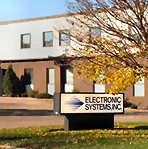 Regular readers will know that we have a particular fascination with Business Wire press releases where companies announce that they have “achieved” registration under the International Traffic in Arms Regulations (“ITAR”). These press releases are amusing because anyone who can figure out how to fill out and mail in the registration form with the requisite fee will be registered and will obtain a registration number.
Regular readers will know that we have a particular fascination with Business Wire press releases where companies announce that they have “achieved” registration under the International Traffic in Arms Regulations (“ITAR”). These press releases are amusing because anyone who can figure out how to fill out and mail in the registration form with the requisite fee will be registered and will obtain a registration number.
Boasting about ITAR registration is not too different from a company claiming that it “achieved” an employer identification number from the I.R.S, thereby demonstrating the company’s extensive knowledge of corporate tax laws and its commitment to tax compliance. And by the time the PR firms for these new ITAR registrants have finished with the Business Wire press release, some of these companies wind up claiming that the ITAR registration demonstrates the company’s intimate knowledge of even the most obscure provisions of the ITAR, its passage of a grueling three-day exam on all aspects of export law, its successful completion of a three-month compliance audit by the Directorate of Defense Trade Controls (“DDTC”) and its ability to leap tall buildings in a single bound.
The latest in this series is this press release from South Dakota based Electronic Systems, Inc., (“ESI”) which, I must say, sets a new benchmark in misunderstanding the DDTC registration process.
Electronic Systems, Inc. today announced they have received their official International Traffic in Arms Regulations (ITAR) registration from the US Department of State, Bureau of Political-Military Affairs. Companies receiving this certification demonstrate that they have knowledge and understanding to fully comply with the AECE and ITAR as well as having corporate procedures and controls in place to ensure compliance. The ITAR Registration means that the company is uniquely positioned to fully support defense related projects in the United States. Companies that are based in the United States but owned by foreign companies or non-Americans make them ineligible for ITAR compliance.
You know, I was almost willing to go along with the company’s claim that ITAR registration demonstrated that it had knowledge of the ITAR. At least I was until I got to that last sentence about foreign ownership precluding ITAR registration. Apparently section 122.2(b)(2) of the ITAR, which specifically contemplates registration by foreign-controlled companies, wasn’t covered on that grueling exam that ESI had to take before “achieving” registration.
 Permalink
Permalink
Copyright © 2009 Clif Burns. All Rights Reserved.
(No republication, syndication or use permitted without my consent.)

 Posted by
Posted by  Category:
Category: 

